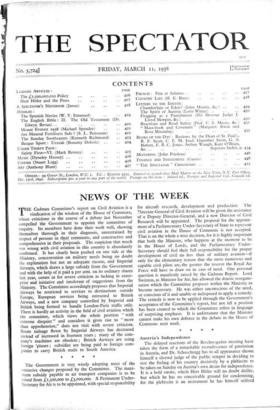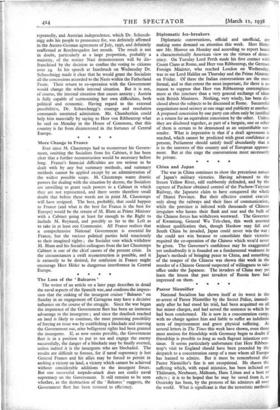Austria's Independence The delayed reactions of the Berchtesgaden meeting have
taken the form of a remarkable recrudescence of patriotism in Austria, and Dr. Schuschnigg has to all appearance shown himself a shrewd judge of the public temper in deciding to test the feeling of his country decisively by a plebiscite to be taken on Sunday on Austria's own desire for independence. It is a bold stroke, which Herr Hitler will no doubt dislike, but which he has no conceivable ground for condemning, for the plebiscite is an instrument he has himself utilised repeatedly, and Austrian independence, which Dr. Schusch- nigg asks his people to pronounce for, was definitely affirmed in the Austro-German agreement of July, 1936, and definitely reaffirmed at Berchtesgaden last month. The result is not in doubt, particularly as a large proportion, probably a majority, of the noisier Nazi demonstrators will be dis- franchised by the decision to confine the voting to citizens over 24. In his speech at Innsbruck on Wednesday Dr. Schuschnigg made it clear that he would grant the Socialists all the concessions accorded to the Nazis within the Fatherland Front. Their return to co-operation with the Government would change the whole internal situation. But it is not, of course, the internal situation that causes anxiety ; Austria is fully capable of surmounting her own difficulties, both political and economic. Having regard to the external possibilitin, Dr. Schuschnigg's courage and resolution commands unstinted admiration. Mr. Chamberlain could help him materially by saying to Herr von Ribbentrop what he said on Monday in the House of Commons, that this country is far from disinterested in the fortunes of Central Europe.











































 Previous page
Previous page